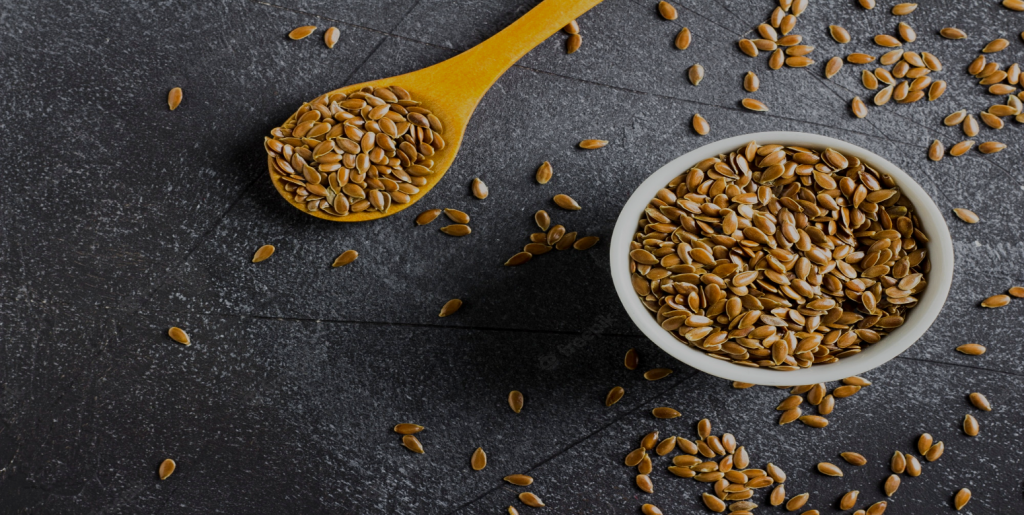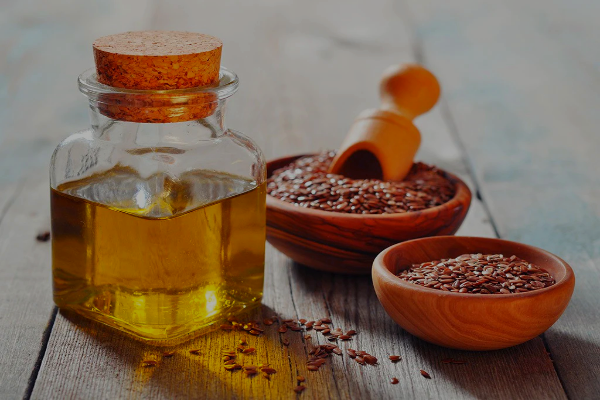Top 7 Flaxseed benefits
Flaxseeds are tiny, brown, tan, or golden-colored seeds that are also referred to as linseeds. In reality, the terms “flax seed,” “linseed,” and “flaxseed” all refer to the same seed. Ancient Babylonians ate flaxseeds 5,000 years ago. Aztec warriors also ate them. King Charlemagne enjoyed eating them in the eighth century .Top 7 Flaxseed benefits.

How does flaxseed affect the body? One of the best meals for lowering inflammation and enhancing gastrointestinal and cardiovascular health is this seed. Here are some details on the numerous health advantages of flaxseeds.
1.High in omega 3 fatty acids
- Alpha-linolenic acid (ALA), a type of omega-3 fatty acid crucial for heart health and mostly present in plant foods, is present in flaxseed and is found in abundance there.One of the two necessary fatty acids that must come from diet because your body cannot make it is ALA.According to animal research, flaxseed’s ALA may help lower inflammation and stop cholesterol from building up in your heart’s blood arteries .Increased ALA intake was linked in a recent study to lower cholesterol levels, a lowered risk of type 2 diabetes and ischemic heart disease, which is linked to narrower arteries, in 8,866 participants A decreased risk of stroke has also been associated with ALA in numerous studies.
- Additionally, one comprehensive evaluation of 34 research found a link between higher ALA intake and a lower risk of dying from heart disease more study here.
2.Fiber-rich yet low in carbohydrates
One of flaxseed’s most remarkable qualities is its high concentration of mucilage gum content, a gel-forming fibre that is water-soluble and passes through the digestive tract undigested.A decreased risk of stroke has also been associated with ALA in numerous studies. Additionally, one comprehensive evaluation of 34 research found a link between higher ALA intake and a lower risk of dying from Mucilage from flaxseeds can prevent food from leaving the stomach and entering the small intestine too rapidly after consumption. You may feel fuller and the absorption of nutrients may increase as a result. Some of the calories present in flaxseed won’t even be absorbed because the fibre cannot be broken down in the digestive system.Flax is high in both soluble and insoluble fibre but low in carbs.
3.Promotes healthy skin and hair
What makes flaxseed beneficial for hair? The benefits of flaxseeds for hair include making it shinier, stronger, and more damage-resistant.By delivering vital fatty acids and B vitamins, which can help lessen dryness and flakiness, the ALA fats in flaxseeds nourish skin and hair.Additionally, it can lessen the effects of eczema, rosacea, dermatitis, and acne. The same is true for eye health, since flax’s lubricating properties can aid lessen dry eye syndrome.
Since flaxseed oil contains an even larger concentration of good fats and strong therapeutic properties that can treat irritated skin, it is another excellent choice for your skin, nails, eyes, and hair. If you desire better-looking skin, hair, and nails
4.Aids in reducing cholesterol and managing hyperlipidemia
Due to its anti-inflammatory activity, anti-hypertensive effects, cholesterol-lowering effects, anti-oxidative capability, and lipid-modulating capabilities, flax supports the health of the heart and arteries.According to a research in the journal Nutrition and Metabolism, including flaxseeds in your diet can help your body eliminate more fat through bowel movements, which lowers “bad cholesterol” levels naturally.The soluble fibre in flaxseed prevents fat and cholesterol from being absorbed by binding them in the digestive tract. Bile, which is created in the gallbladder from cholesterol, is similarly trapped by soluble flax fibre. The body is thus forced to produce more bile, which uses up extra cholesterol in the blood and lowers cholesterol as a result. The bile is subsequently expelled through the digestive system.
5.May Aid in Diabetes Management
Given that flaxseed is well known for lowering blood sugar levels, persons who are predisposed to diabetes may find it helpful. For a month, diabetic participants who had one tablespoon of ground flax daily saw significant reductions in their triglycerides, cholesterol, and A1C levels as well as their fasting blood sugar.
Flaxseeds may help increase insulin sensitivity in persons with type 2 diabetes or glucose intolerance. According to one study, there was a slight but significant reduction in insulin resistance after 12 weeks of flax supplementation.
6.Might help prevent cancer
Lignans, which are plant components with powerful anti-cancer potential, are abundant in flaxseed. Interestingly, compared to other plant diets, this seed has 75–800 times more lignans .
Some research links flaxseed consumption to a reduced risk of breast cancer, especially in postmenopausal women.Flaxseed has been shown in animal and laboratory research to be protective against colorectal, skin, blood, and lung cancer .
7.Might bring down blood pressure
The capacity of flaxseed to lower blood pressure is well known .Supplementing with flaxseed products, such as flaxseed powder, may considerably lower levels of both systolic and diastolic blood pressure, the top and bottom numbers on a reading, respectively.
The use of this seed may be particularly beneficial for people with high blood pressure. In fact, a short 12-week trial revealed that persons with high blood pressure could lower it by ingesting 4 tablespoons (30 grammes) of flaxseed daily .Additionally, a thorough analysis of 11 studies found that eating flaxseed on a regular basis for longer than three months could reduce blood pressure by 2 mmHg.



